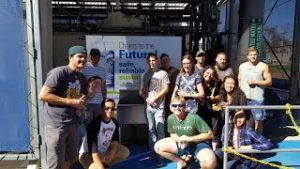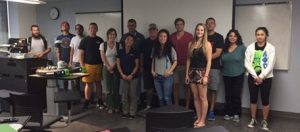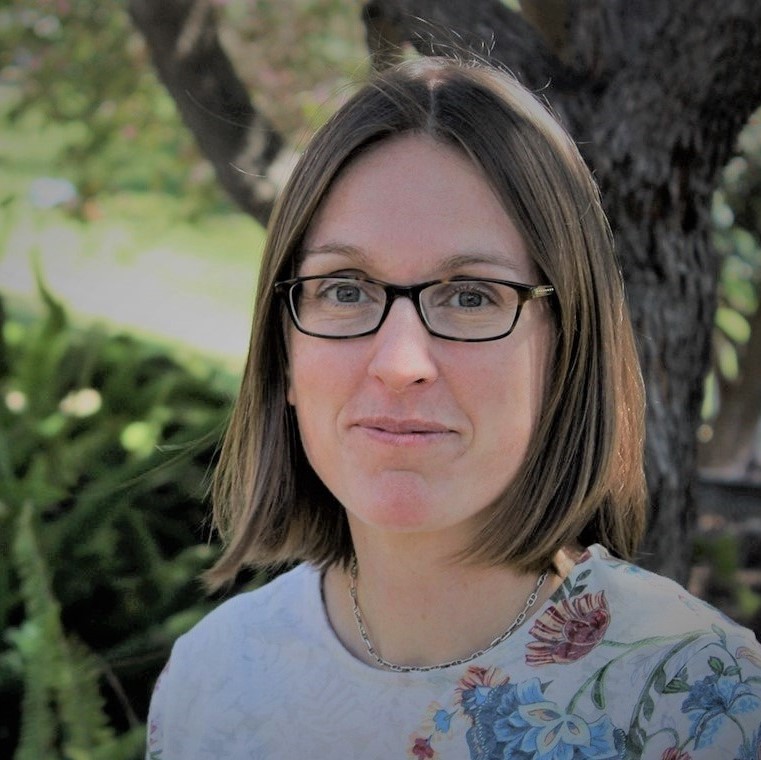Teaching
Postgraduate
-
In Fall 2019, Hilary offered a class on “Forecasting river flows and floods using hydrologic models” as part of the CUAHSI Virtual University.
CUAHSI organizes inter-university online courses to enhance the depth and breadth of graduate course offerings at universities across the nation, increase the rate of uptake of new research and facilitate networking among our hydrologic community.
The format of the course is designed to give students flexibility to select the three topics most relevant to them from a list of Specialized Online Hydrology Course modules. Modules are offered by leading faculty in these specialized research niches from across the country.
-
This course is designed for students who are interested in how hydrologic models work, how they help us to manage water resources, and how they are used to inform environmental policy. The course will appeal to students who may need to use and critically assess hydrologic model analyses or output in their future environmental careers, as well as those looking to develop or build models. The course is divided into five parts:
- Modeling Process and Philosophy. This initial part of the course introduces the concept of the Earth System, and how hydrologic processes form part of that system. We take a step-by-step look at how scientists describe and quantify hydrologic processes within a simulation model.
- Building your own hydrologic model in Matlab. Students use the computer program Matlab to explore, analyze and visualize hydrologic data. Using the concept of the water balance, we learn how to simulate the water resources in a lake, and in a snow pack.
- Applied Modelling for Water Resource Predictions. Using a popular hydrologic model, we use hands-on lab exercises to answer typical environmental questions. These include: predicting river flow, estimating flood size and simulating the impacts of land use change.
- Modeling controversies. We discuss advantages, disadvantages and effectiveness of using different types of hydrologic models for water management; with a look at criticisms levelled at the accuracy and reliability of model results, and a class debate.
- Science Policy using models. We evaluate the use of hydrologic models and scientific assessments in decision-making, policy-setting and environmental governance, including the techniques of scenario analysis and participatory modeling.
-
The course is designed to develop an understanding of hydrologic processes at the surface of the Earth so that we can examine how environmental change, such as land use/cover change or climate change, affects hydrology.
Students will learn about the types of hydrologic changes that can occur, and which methods are used to study them. Examples of watersheds and regions from around the globe, with different climates and flow regimes, will be used to introduce the physical processes behind hydrologic changes.
Data from these watersheds will be analyzed in class to demonstrate how hydrologic data can be used to quantify ongoing hydrologic change and make predictions about future watershed response. An emphasis will also be placed on learning fundamental scientific skills including data collection, data evaluation, scientific writing and presentation skills.
Undergraduate
-
Where does freshwater occur on Earth? How does water flow interact with aquatic ecosystems? What hydrological processes maintain the quantity and quality of water? How do humans impact the hydrological cycle, and what are the implications of global climate change for water resources?
Environmental hydrology is the study of the distribution and movement of water on Earth, including precipitation, runoff, groundwater, surface-atmosphere interactions, and human-environment relations.
Students will become familiar with conceptual and quantitative models of hydrological processes and how water interacts with humans and ecosystems. A major emphasis is placed on the critical use of simple calculations and observations to test working hypotheses about water.

GEOG 375 Class trip to the San Diego Pure Water facility for water recycling

GEOG 375 Class seminar with speakers from Xylem to learn about ADCP sensors for river flow monitoring
